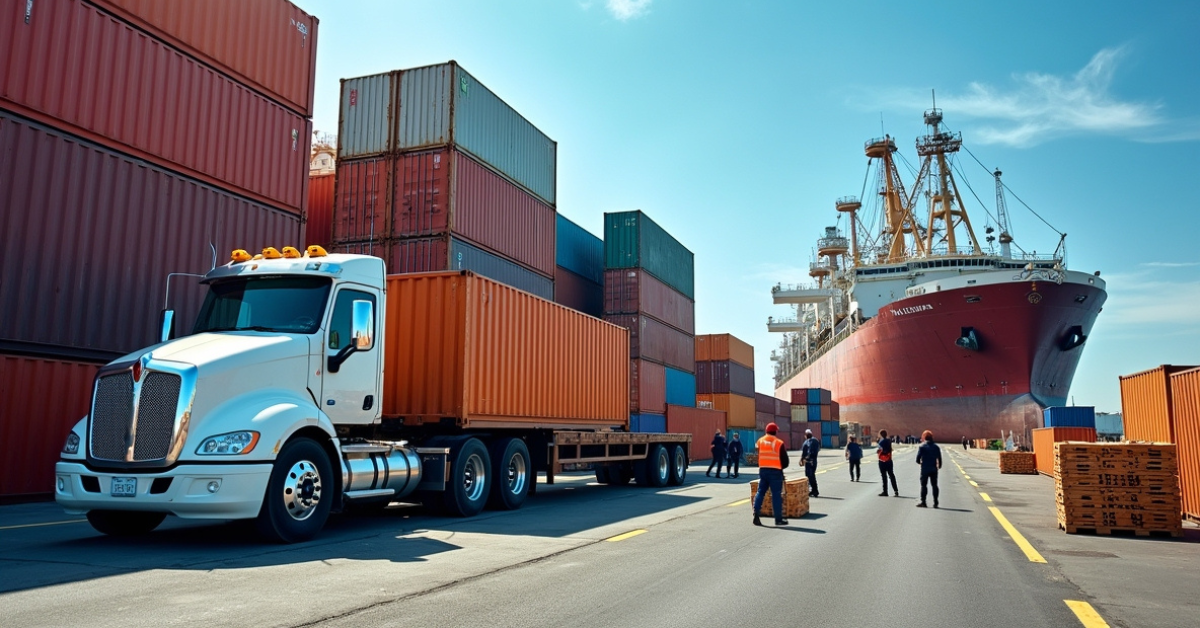
EORI Codes, VAT, and HS Codes: An Amazon Vendor's Guide
For vendors selling across borders, customs compliance is a critical part of keeping operations smooth and avoiding costly delays. Whether you're expanding into new markets or refining your supply chain, understanding EORI codes, VAT registration, and HS codes is essential.
In this guide, we’ll explain what each of these requirements means, how they impact your Amazon Vendor Central operations, and what steps you need to take to ensure total compliance.
What is an EORI Number and Why Do You Need It?
An Economic Operators Registration and Identification (EORI) number (often called an "EORI code") is a unique identifier used by customs authorities across the UK and the EU. It is required for businesses importing or exporting goods outside their home country.
Without an EORI code, your shipments may be delayed, rejected, or subject to additional customs fees - issues that can impact your Amazon chargeback recovery and overall vendor performance.
How to Obtain an EORI Code:
-
UK-based businesses: Apply for an EORI number through the UK government portal. Processing can be immediate, but may take up to 5 working days.
-
EU-based businesses: If your business operates in the EU, you must apply for an EORI number in the country where your company is registered.
-
Businesses trading in both regions: You'll need separate EORI codes for the UK and the EU to cover both customs territories.
To ensure smooth customs clearance, always include your EORI code on invoices and customs declarations.
VAT Registration: What Vendors Need to Know
Value Added Tax (VAT) applies to most goods sold in the UK and EU. If you’re selling across borders, understanding your VAT obligations is essential for legal compliance and maintaining a strong Amazon listing optimisation strategy.
When Do You Need to Register for VAT?
-
If you sell goods in the UK or EU and exceed the VAT registration threshold, you must register in the respective country.
-
If you store stock in another country, you will likely need to register for VAT there.
-
Some marketplaces, including Amazon, may require VAT registration for compliance with local tax regulations.
How to Register for VAT:
-
UK registration: Apply via HMRC’s online portal.
-
EU registration: Each country has different VAT rules. You may need to register in multiple locations if you sell across several EU markets.
-
Use VAT services: Many vendors work with tax compliance specialists to manage VAT filings across different regions.
Amazon’s VAT services can also help streamline your compliance, particularly if you use Amazon fulfilment centres in multiple countries.
HS Codes: Classifying Your Products Correctly
Harmonised System (HS) codes are standardised numbers used to classify products for international trade. These codes help customs authorities determine the correct duties and taxes for imported goods.
Why HS Codes Matter:
-
Incorrect HS codes can result in incorrect tax charges or shipment delays.
-
Customs authorities may reject shipments if the declared HS code is incorrect.
-
HS codes ensure your goods comply with product regulations in the destination country.
How to Find the Right HS Code:
-
Check the UK Trade Tariff tool or EU TARIC database to identify the correct code for your product.
-
Work with a customs expert to ensure accuracy, particularly if your product has multiple potential classifications.
-
Ensure consistency across all documentation, including invoices and shipping labels.
Managing customs declarations and compliance
Once you have the correct EORI code, VAT registration, and HS codes, it’s important to ensure all customs declarations are completed accurately.
Best practices for customs compliance:
-
Ensure accurate documentation: Customs invoices should include the correct EORI number, VAT details, HS codes, and product descriptions.
-
Label shipments correctly: Non-compliant labelling can result in delays or additional fees.
-
Use customs brokers where necessary: If you’re managing large-scale imports or exports, a customs broker can help streamline the process.
-
Stay updated on regulatory changes: Tax and customs rules can change frequently, so ensure you stay informed to maintain compliance.
FAQs: EORI, VAT and HS codes
Do I need an EORI code if I only sell domestically?
No, an EORI number is only required for businesses involved in international trade. If you only sell within the UK or within a single EU country, you do not need one.
Can I trade on Amazon without a VAT number?
If your sales are below the VAT threshold in a given country, you may not need to register. However, if you store inventory in another country, VAT registration is usually required.
How do I know if my HS code is correct?
You can verify HS codes using official government tariff databases or by consulting a customs expert. Incorrect classification can lead to delays and penalties.
What happens if I don’t include my EORI number on shipments?
Your goods may be delayed at customs, returned to the sender, or subject to additional fees.
How often do VAT regulations change?
VAT regulations can change frequently due to policy updates or trade agreements. Regularly check government resources or work with a tax specialist to stay compliant.
The bottom line
Understanding EORI codes, VAT registration, and HS codes is essential for vendors looking to trade internationally on Amazon. Compliance with these regulations not only prevents delays and penalties but also ensures a smoother supply chain and better customer experience.
At WAKE, we help vendors navigate the complexities of cross-border selling, ensuring you stay compliant while unlocking Amazon’s full potential.
👉 Need expert support? Get in touch today.

